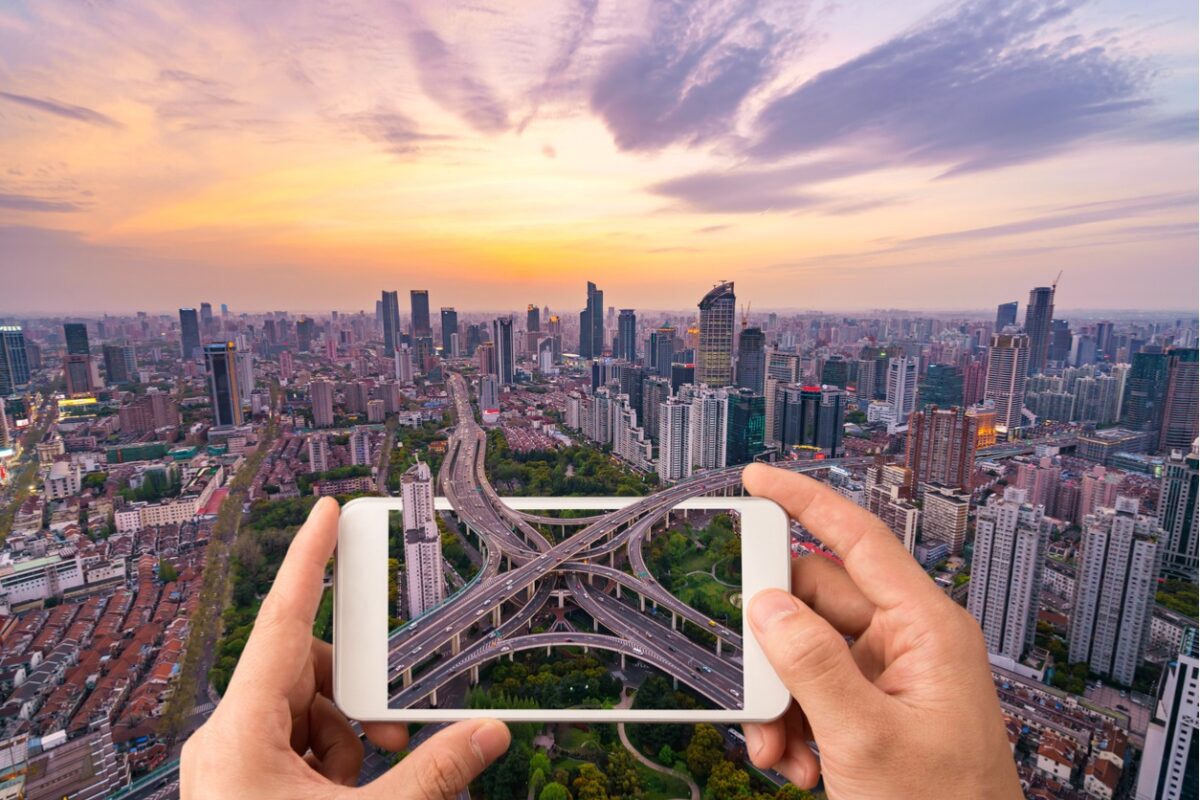VR is at the forefront of travel today. Imagine watching what looks like the shimmering city awash with setting sunlight right from the Burj Khalifa but not from there but being whisked there virtually from your living room through a VR headset. And when it comes to innovation, Dubai has hardly ever failed—in Palm Jumeirah, right up to Expo 2020.
While travelers seek increasingly entertaining and flexible experiences, Virtual Dubai tours and augmented reality in tourism are setting new dynamics of exploration, with Dubai at the very forefront.
Why Use VR in Dubai Tourism?
Because “Seeing is Believing” is no longer enough. We must face the truth: conventional travel marketing has limitations. Brochures and videos cannot replicate the feeling of dune bashing in the Arabian Desert or the relaxed emotions you get from a sunset yacht ride across Dubai Marina. That is where VR in Dubai Tourism comes in.
Dubai is selling not just trips but feelings—360-degree interactive previews. And not just the solo travelers. Tour agencies now use VR booths at travel fairs to let families “test-drive” desert safaris or Ski Dubai’s slopes. The result? A 40% uptick in bookings post-experience, proving that VR in Dubai Tourism isn’t just cool—it’s commercially savvy.
From Dream to (Virtual) Reality: Dubai’s Tech-Driven Attractions
1. Virtual Previews, Real Decisions
Dubai’s Department of Tourism has partnered with tech firms to launch Virtual Dubai tours of hotspots like the Burj Al Arab, Atlantis The Palm, and Al Fahidi Historical District. These aren’t just static videos—they’re interactive journeys where users can “open” hotel suite doors or “stroll” through spice souks.
For luxury travelers, this means vetting five-star resorts without relying on filtered Instagram posts. For culture buffs, it’s a chance to explore the Dubai Frame’s sky-high gallery before braving the elevator. As tour guide Ahmed Ali puts it: “VR doesn’t replace the real thing—it makes people crave it.”
2. Augmented Reality: The Cherry on Top
While VR immerses users in digital worlds, augmented reality in Dubai tourism enhances real-world visits. Apps like Dubai 360 overlay historical facts onto landmarks when viewed through a smartphone. Point your camera at the Burj Khalifa, and AR pop-ups reveal construction secrets or dining deals at Atmosphere.
During the Dubai Shopping Festival, AR transforms malls into treasure hunts, where shoppers “catch” virtual discounts floating near stores. It’s playful, practical, and keeps visitors engaged longer. “AR bridges the gap between online research and on-ground exploration,” says tech consultant Layla Hassan.
Crisis-Proofing Tourism: VR’s Role in a Post-Pandemic World
Remember when borders closed overnight in 2020? Dubai’s tourism sector took a hit, but Virtual Dubai tours became a lifeline. Virtual reality allowed the city to stay on travelers’ radars, offering “try before you fly” experiences that kept wanderlust alive.
Hotels like Jumeirah Al Qasr launched VR-powered wedding planning tools, letting couples “host” events in their ballrooms remotely. Emirates Airlines even introduced VR cabin walks to reassure nervous flyers about COVID-safe protocols.
The lesson? VR in Dubai Tourism isn’t just for marketing, it’s a tool for resilience.
Challenges: The Flip Side of the Virtual Coin
Of course, tech adoption isn’t without hurdles. Some critics argue VR could deter actual travel (“Why visit Dubai if I’ve already ‘seen’ it?”). But data tells a different story: 68% of virtual tour users say the experience increased their desire to visit, per a 2023 Dubai Tourism report.
Other challenges include:
- Tech Costs: High-quality VR setups can be pricey for small tour operators.
- Accessibility: Not every traveler owns a VR headset (yet).
- Content Fatigue: Overused poorly, VR can feel gimmicky.
So what is the answer? Hybrid solutions. Pop-up VR kiosks in malls, partnerships with Meta for affordable headsets, and strict quality checks on Virtual Dubai tours to ensure they’re awe-inspiring, not tacky.
The Future: Where Real and Virtual Worlds Collide
Imagine checking into a hotel where your AR glasses personalize art displays in your room. Or attending a digital twin of the Dubai World Cup, betting on AI-generated horse races. With Expo City Dubai already testing metaverse integrations, this future isn’t far off.
And let’s not forget sustainability. Virtual Dubai tours reduce the need for physical travel fairs, cutting carbon footprints. Meanwhile, AR apps can guide tourists to eco-friendly attractions, aligning with the UAE’s Net Zero 2050 goals.
Conclusion
Dubai’s tourism revolution is just beginning, and whether you’re a hotelier, tour operator, or event planner, immersive tech is your ticket to standing out. But where to start? That’s where Limina Studios shines. Based in Dubai, this creative agency specializes in crafting bespoke Virtual Dubai tours and augmented reality in Dubai tourism experiences that dazzle visitors and drive bookings.
From designing VR previews of upcoming resorts to AR-enhanced city trails, Limina Studios turns pixels into passion.



 Virtual Tour
Virtual Tour CGI Virtual Tour
CGI Virtual Tour Photography & Video
Photography & Video Virtual Reality
Virtual Reality Virtual Commerce
Virtual Commerce Indoor Navigation
Indoor Navigation Analytics
Analytics Avatars
Avatars Ticketing System
Ticketing System Connected Workforce
Connected Workforce Facilities Management
Facilities Management Real Estate & Architecture
Real Estate & Architecture Hospitality and Travel
Hospitality and Travel Museum and Galleries
Museum and Galleries Retail and Showrooms
Retail and Showrooms Industry 4.0
Industry 4.0 Education
Education Oil & Gas
Oil & Gas Blog
Blog Case Studies
Case Studies About us
About us Partners
Partners


















